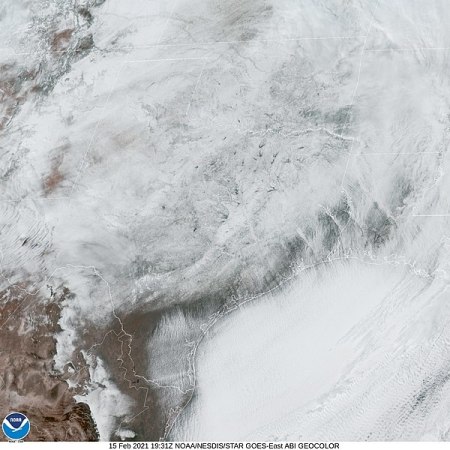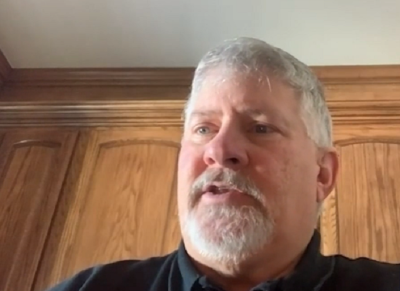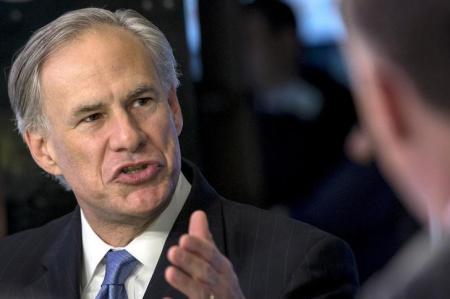Texas man charged $16,752 for electric bill as Gov. Abbott seeks solutions after snow storm

Texas Gov. Greg Abbott announced Sunday that he is working with members of the state legislature to address “skyrocketing energy bills” that have hit customers like a tsunami in the wake of a wild winter storm that left millions of residents without power last week.
Like 63-year-old Army veteran Scott Willoughby, who got hit with a $16,752 electric bill, many Texas residents are now contractually obligated to pay high charges due in part to the state’s uniquely unregulated energy market.

Customers in Texas are allowed to choose their electricity providers among about 220 retailers in a market-driven system.
Willoughby, who lives on Social Security payments in a Dallas suburb, told The New York Times that his $16,752 electric bill that his energy provider charged to his credit card has wiped out his savings and left him broken. But there’s nothing he can do about it.
“My savings is gone,” he said. “There’s nothing I can do about it, but it’s broken me.”
Willoughby, whose energy provider is a company called Griddy, has since launched a GoFundMe campaign to help him cover his bill.
“For 7 days of the Texas freeze, I got a utility bill of $16,752.68 and my brother's is over $9,000. We are both retired veterans on fixed incomes and this has wiped us out,” Willoughby detailed in his online campaign.
“Mine went on my credit card and once paid, will almost wipe out my savings and my brother’s came straight out of his bank account causing an overdraft. Any and all help is appreciated. Blessings on all!”
As of Tuesday morning, Willoughby’s campaign raised well over $12,000.
On Saturday, after public outcry and a meeting convened with state lawmakers to discuss the situation, Gov. Abbott stated that the state has a responsibility to protect residents from exorbitant energy costs.
“We have a responsibility to protect Texans from spikes in their energy bills that are a result of the severe winter weather and power outages," Abbott said. "Today’s meeting was productive, and I applaud Republican and Democrat members of the Legislature for putting aside partisan politics to work together on this challenge. We are moving quickly to alleviate this problem and will continue to work collaboratively throughout this week on solutions to help Texas families and ensure they do not get stuck with skyrocketing energy bills.”

On Sunday, Abbott announced that the state’s Public Utility Commission had issued a moratorium on customer disconnections for non-payment and would temporarily restrict providers from issuing invoices.
“This pause will ensure that the state has time to address these bills and develop a solution for Texans,” a statement from the governor’s office said.
In its announcement Sunday, the PUC said the moratorium orders were only applicable to customers of investor-owned utilities across the state that fall under the PUC’s jurisdiction, which are: Oncor, American Electric Power, CenterPoint and Texas-New Mexico Power.
The PUC order does not apply to municipally-owned utilities or electric cooperatives that are not within the PUC’s jurisdiction.
“Our absolute top priority as a commission and a state is protecting electricity customers from the devastating effects of a storm that already affected their delivery of power,” PUC Chairman DeAnn Walker said in a statement. “The order and directives are intended to be temporary, likely through the end of this week, to address the potential financial impacts that are especially challenging during this extremely difficult time.”
Griddy, which charged Willoughby $16,752.68 for seven days, appeared to blame the PUC for the high energy costs in the state’s energy market because it has “complete authority” over the Electric Reliability Council of Texas.
“On Monday evening the Public Utility Commission of Texas (PUCT) cited its ‘complete authority over ERCOT’ to direct that ERCOT set pricing at $9/kWh until the grid could manage the outage situation after being ravaged by the freezing winter storm,” Griddy said in a statement Thursday.
“Under ERCOT's market rules, such a pricing scenario is only enforced when available generation is about to run out (they usually leave a cushion of around 1,000 MW). This is the energy market that Griddy was designed for – one that allows consumers the ability to plan their usage based on the highs and lows of wholesale energy and shift their usage to the cheapest time periods.”
The power company added that as of Thursday, 99% of homes had their power restored, and “available generation was well above the 1,000 MW cushion.”
“Yet, the PUCT left the directive in place and continued to force prices to $9/kWh, approximately 300x higher than the normal wholesale price,” the Griddy statement explained. “For a home that uses 2,000 kWh per month, prices at $9/kWh work out to over $640 per day in energy charges. By comparison, that same household would typically pay $2 per day.”
Some providers not covered by the PUC orders, like CPS Energy, said they are looking at solutions like payment plans that would allow customers to pay for their unexpected bills over multiple years.
CPS Energy is the nation’s largest municipally-owned energy utility providing both natural gas and electric service. The utility provider serves more than 840,750 electric customers and 352,585 natural gas customers in and around San Antonio.
Paula Gold-Williams, president and CEO of CPS Energy, said during a press conference Monday that because of how the energy market is set up in Texas, the company had to pay a high price for the energy they provided during the storm.
“We, like every other operator, every other community, bought fuel, particularly natural gas for the needs. We did not buy the natural gas that was needed to fuel the natural gas system. If we didn’t buy it, we wouldn’t have had enough fuel to operate the plants,” she said. “And we wouldn’t have been able to provide any energy at all. We saw immediately that the price of natural gas in particular, which also sets the price of power in the market, shot up.”
She explained that the increases the company saw were initially 6,000% to 7,000%. Then they kept climbing to as high as 16,000%.
“That is something that the whole state and industry is currently reconciling with,” she said.
Gold-Williams noted that she foresaw a “tsunami” in terms of customer affordability and said the company would try to do everything it could to help reduce costs for San Antonio customers, including possibly spreading the charges over multiple years in a payment plan.
The utility provider had shared a similar statement on Twitter early Monday about the charges that has since disappeared from its account but is now being circulated widely on the social network.
“We understand that it would be unacceptable to have customers bear the costs on their monthly bill, so we are working diligently to spread those costs to 10 years or longer to make it more affordable,” CPS Energy said.
The company has also suspended autopay for customers as they work to resolve the situation.





















